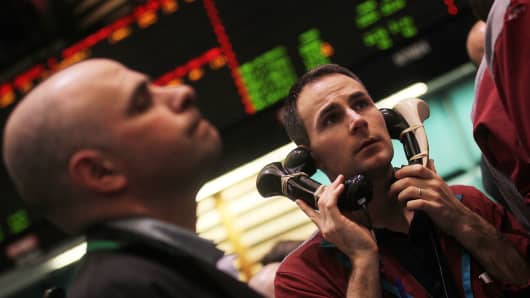It's a busy fortnight for oil traders. There was the OPEC members' meeting in Vienna - and the tussle over who will take the coveted title as the club's next Secretary General. Hot on the heels of the Vienna meetings traders saw an unexpected crisis unfolding in Iraq , second largest OPEC producer. That culminated in nine-month highs in WTI and Brent prices on concerns over potential supply disruptions in Iraq as Islamist militants seized major cities in the country's north.
There is no respite for oil traders as this week all eyes will undoubtedly be on talks between world powers and Iran in Vienna from June 16-20. They will attempt to make further headway in striking a deal to curb Iran's nuclear program in exchange for lifting Western sanctions, most importantly on oil exports.
The current deadline calls for a deal by July 20, but progress has been stalling and a further six-month extension to the talks is looking increasingly likely.
Oil markets have long been bracing for a partial return of Iran's oil to the market, expected to bring prices down from current levels as oil output by Iran is heavily limited by Western sanctions.
Iran Oil Minister Bijan Namdar Zanganeh told CNBC ahead of the OPEC meeting in Vienna last week: "Our capacity now is 3.8 (million barrels per day) but our production is below it because of the illegal limitations against us and we are trying to increase our output in this situation. If the sanctions are lifted, very soon we can produce 0.5m barrels and after some months we can produce another 200k barrels and reach 4m bpd crude."
Asked how the discussions to lift sanctions were progressing, the oil ministers chose to be vague: "It's going ahead, but both sides should be patient"
Iran talks complicated by Iraq?
According to Petromatrix, a Swiss-based oil markets advisory firm, the Iran talks come "at an awkward time as it is basically now left to Iran to reconsolidate the Iraqi boots to defend the billions of dollars of investments by P5+1 countries in the south of Iraq."
All of a sudden, the staunch adversaries U.S.A. and Iran are thrown on the same side in the battle.
The U.S. state department even said the two countries had a "shared interest" in stabilizing Iraq.
Such utterance would have been unthinkable at any point over the last decade.
Iran has signaled it is "ready to help" fight the Sunni Islamist militants in the North of the country and reports indicate it has already sent soldiers to win back seized cities in Iraq. Meanwhile the U.S. has been contemplating its own response, although the dispatch of ground troops looks highly unlikely as President Barack Obama cannot afford to make a U-turn on his Iraq policy by undoing the 2011 removal of troops.
Any common effort by the two countries to stabilize Iraq will be driven by necessity rather than by choice.
It is questionable what the scope of Iran's motives are. Is Iran's President Hassan Rouhani simply trying to support the Shia stronghold in the region -- understandably so -- or is Tehran also attempting to make Washington more amenable to offering goodwill over the nuclear discussions?
Even if the latter may be the case, don't hold your breath. The timing of the Iraq conflict and the high level talks on Iran may coincide, but the U.S. will not be schmoozed into making any concessions on the nuclear front. Divisions between the two states run too deep.
And for oil traders this means sit tight and watch - the price of oil may just languish at recent highs a little longer.



